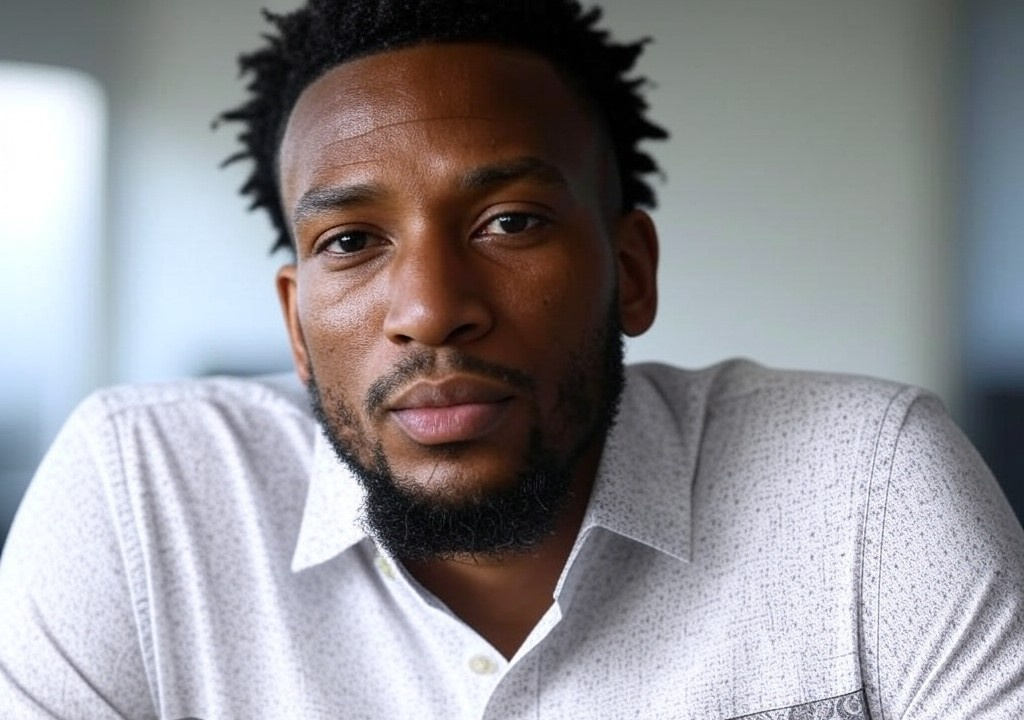I’ll never forget the night I stared at a blank Word doc with the same panic you might feel when you realize your date just ordered the steak but your wallet is subtly whispering, "Grilled cheese budget." Writing this piece—let’s call it the literary marathon of my career—felt like being ghosted by my own creativity. Empty page, blinking cursor, full existential crisis. What made it so hard? The topic wasn’t just tough; it demanded a level of exposure I wasn’t sure I could handle. But let me back up.
The Assignment That Broke Me (and Then Built Me Back Up)
My editor at the time, a whip-smart, coffee-fueled machine of ideas, had just pitched a wild concept: write about vulnerability in relationships—straight from my personal vault. Now, I’ve written about gentrification, Chicago politics, even my little cousin’s obsession with Kanye’s Graduation album (a hill I’ll die on as the best Kanye era). But romantic vulnerability? The kind where you peel back layers you didn’t even know were there? That was uncharted territory.
I wasn’t afraid of the topic itself—what scared me was that it felt so... personal. Personal is scary. Personal is walking up to karaoke night and singing "Bohemian Rhapsody" without checking if the high notes are even in your range. Spoiler alert: they’re not.
Flashback to My Own Vulnerability Fiasco
To tackle this piece, I thought back to a moment that rocked me to my core. A few years ago, I met someone. Let’s call her Maya. Maya was magnetic. The kind of person who could get the whole room to laugh at a mediocre joke just by raising one eyebrow (yes, she was that charismatic). We clicked instantly, and for months, things were almost too good to be true. You know where this is going.
One night, after a late dinner on the Chicago Riverwalk, Maya asked me a question that turned my world upside down: “What is it you’re most afraid of—like when it comes to us?”
Now, I’d grown up on Chicago’s South Side around strong, resilient people who didn’t exactly sit around sipping tea and analyzing feelings. You dealt with things, you pushed forward. Vulnerability wasn’t a weakness—it was a nonstarter. So when faced with such a raw question, I choked. Instead of going deep, I deflected with some half-baked response about fearing "bad weather." Somehow, that answer made sense in my head. It didn’t in hers.
We didn’t make it through much longer after that. Looking back, it wasn’t the lack of feelings that ended things; it was the lack of my willingness to share those feelings. It was a hard pill to swallow, realizing that, sometimes, walls protect nothing but your own loneliness.
The Writing Struggle Is the Universal Struggle
Fast forward to that blinking cursor. To properly write about vulnerability, I had to live it again. I pulled up that Maya memory, cracked it open, and held every jagged piece to the light. I knew if I didn’t dive into the deep end of the pool—even if my swim skills were rusty—whatever I wrote would lack authenticity. And readers? They smell inauthenticity like cheap cologne on a first date.
But here’s the thing about vulnerability: it’s an equal-opportunity disrupter. Whether you’re opening up in love, friendships, or a piece of writing, it will challenge the stories you tell yourself about who you are. Remember that Fresh Prince episode when Will’s dad walked out again, and he asked, “How come he don’t want me, man?” Vulnerability is like that moment—it rips you open and dares you to feel what’s real.
Lessons Learned (a.k.a. Soul-Stirring Realizations)
While trudging through that article—cursing at my laptop between sips of coffee and daydreams of calling my editor to quit—I learned a few things about vulnerability, writing, and relationships. Here’s what stuck with me:
-
Vulnerability Isn’t Weakness; It’s Strength.
Say it louder for the folks in the back. It’s harder to admit you’re scared than it is to ghost someone or shut down when things get real. Think of vulnerability like stretching: painful at first, but freeing in the long run. -
Trust Your Reader Like You’d Trust a Partner.
Writing, much like relationships, is a two-way street. You have to believe the other person—whether it’s your audience or your significant other—is capable of handling your honesty. Sure, there’s a risk they won’t get it, but that’s the price of being genuine. -
The Most Challenging Projects Are Usually the Most Rewarding.
I won’t lie: finishing that article felt like surviving a Chicago winter without losing a glove. But the feedback I received—from strangers sliding into my DMs to thank me for “saying what they couldn’t”—made every uncomfortable minute worth it.
How to Channel Vulnerability Like a Pro (Minus the Sleepless Nights)
Writing about vulnerability may not be on your to-do list, but opening up in real life probably is. So, here’s some advice for anyone navigating the emotional battlefield of relationships (romantic or otherwise):
-
Start Small. Vulnerability doesn’t have to be a grand gesture. Share a fear, a dream, or even an embarrassing story (like that time I split my pants in front of a classroom while teaching). Small doses build trust.
-
Embrace Awkwardness. Vulnerability can feel like karaoke without rehearsing or a first salsa class when you’ve got two left feet. Push through the cringe-worthy moments—they’re a sign you’re growing.
-
Listen (Like, Really Listen). Being vulnerable isn’t just about talking; it’s about creating a space where someone else feels safe enough to do the same. Nods, eye contact, and the occasional “I feel you” go a long way.
The Final Word (a.k.a. A Pep Talk for the Vulnerability-Challenged)
When that article finally went live, I felt exposed. But you know what else I felt? Free. Because here’s the thing: vulnerability is a gift—not just to others, but to yourself. It strips away the noise and posturing and leaves you with something raw, real, and authentically you.
So, whether you’re bracing yourself for a candid heart-to-heart, hitting "send" on a risky text, or admitting to your partner that you actually love their favorite corny soap opera—lean into the discomfort. Vulnerability paves the way for connection and healing.
Oh, and one more thing? If you ever find yourself typing late at night with a blinking cursor, wondering if the words will come... they will. Just give them a moment to warm up, like jazz slowly building to a crescendo. Because as Maya, and life, taught me: the hardest pieces always offer the sweetest lessons.




















